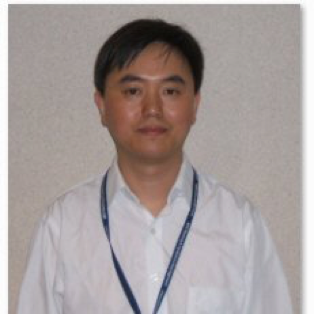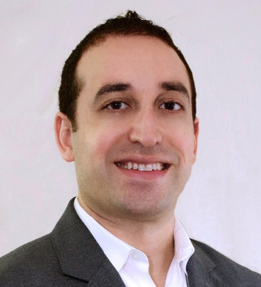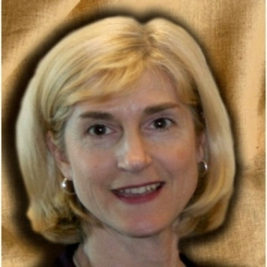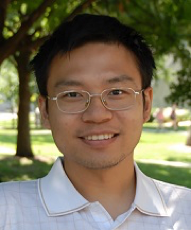ACM BCB 2015 Industry Track
Big Data Analytic Technology for Bioinformatics and Health Informatics
September 11th, 2015 (Friday), 10am-12pm
Room:225
Track chairs: Xin Deng, Ph.D., Microsoft, xinde@microsoft.com
Donghui Wu, Ph.D., Knowledgent, donghui.wu@knowledgent.com
10:00 - 10:20 Building and Implementing Data Science Products to Change Healthcare IT
Vincent A. Emanuele II, Ph.D, Wellcentive, vincent.emanuele@wellcentive.com
David Lloyd, Wellcentive, david.lloyd@wellcentive.com
10:20 - 10:40 Senior Health Management through Internet of Things and Real-Time Big Data Analytics
Xin Deng, Ph.D., Microsoft, xinde@microsoft.com
Donghui Wu, Ph.D., Knowledgent, donghui.wu@knowledgent.com
10:40 - 11:00 A Bayesian Nonparametric Approach for Latent Class Regression Analysis
Nong Shang, Ph.D., Division of Bacterial Diseases, NCIRD, nms6@cdc.gov
11:00 - 11:20 Learning Causal Structures with Background Knowledge in Health Data
Yiheng Liang, Ph.D., University of North Texas, yihengliang@my.unt.edu
Armin R. Mikler, Ph.D., University of North Texas, mikler@cs.unt.edu
11:20 - 11:40 Development of a mobile app to address a healthcare gap about laboratory testing
Julie Taylor, Ph.D., CDC, jtaylor1@cdc.gov
11:40 - 12:00 Big Data and Predictive Modeling Topics in Healthcare
Panel Chairs: Xin Deng, Ph.D., Microsoft, xinde@microsoft.com
Donghui Wu, Ph.D., Knowledgent, donghui.wu@knowledgent.com
Track Chair Dr. Xin Deng

Dr. Xin Deng is data scientist with Microsoft Skype. She is conducting predictive modeling in call quality metrics through data mining and machine learning techniques in order to improve call quality, user experiences and help answer questions from business perspective. Moreover, she is investigating Skype Customer Feedback data to identify top topics or problems for “smarter Skype feedback analysis” integrating text mining and topic modeling techniques. Before Microsoft, she was a research scientist with LexisNexis Healthcare. She focused on healthcare risk analytics, with medical, pharmaceutical claims and public record data. Dr. Deng received her Ph.D. from University of Missouri at Columbia. At Mizzou, her projects involved designing and applying computational methods and data mining technologies to solve some essential bioinformatics problems, such as protein sequence and profile alignment, fold recognition, protein structure prediction, etc.
Track Co-Chair Dr. Donghui Wu

Dr. Donghui Wu is currently Chief Data Scientist for Healthcare and Life Science of Knowledgent Group Inc., a leading consulting firm in Big Data Governance and Management, and Big Data Analytics. Previously he was Senior Director of Statistical Modeling with LexisNexis Healthcare. His work primarily focuses on predictive modeling for population health management, health insurance risk management and underwriting, clinical analytics and big data analytics. He received his Ph.D. from Rensselaer Polytechnic Institute, Troy, NY.
Invited Speaker Dr. Vincent Emanuele

Dr. Vincent Emanuele founded the data science team at Wellcentive in August 2014. The data science team is the first R&D unit at Wellcentive, and is actively involved in bringing innovative applications of statistics and machine learning to the company in the areas of Suggestive Care, Clinical Decision Support, Healthcare System Benchmarking, Clinical Quality, and Data Quality. He received a PhD in Electrical and Computer Engineering from Georgia Tech.
Invited Speaker Dr. Nong Shang

Dr. Shang is currently the Chief of the Biostatistics Office in the Division of Bacterial Diseases at the Center for Disease Control (CDC). He was previously a Statistician with the CDC’s Data Management and Statistics Branch. Dr. Shang's major research areas are in non-parametric statistics, tree-structured methodology and statistical computing with applications to infectious diseases. Dr. Shang received his Ph.D. from University of California, Berkeley.
Invited Speaker Dr. Julie R. Taylor

Julie R Taylor, PhD, MS is currently the Project Lead for the Clinical Laboratory Integration into Health Care Collaboration (CLIHC)TM from the Division of Laboratory Programs, Standards, and Services at the Centers for Disease Control and Prevention (CDC). She coordinates programs to improve laboratory quality by enhancing the capacity, infrastructure, and capabilities of laboratories worldwide. Julie received her B.S. Microbiology from the University of Alabama, M. S. and Ph.D. Microbiology from Auburn University, and had her post-doctoral training at Emory University School of Medicine. Throughout her years of working in the private sector in laboratory and clinical research settings, Julie has identified, developed and completed programs including patents and FDA- or USDA- licensed medical devices, vaccines, and diagnostics. She has developed both commercial and research diagnostics for detecting antigens, antibodies and cellular immunity in the areas of virology, immunology, parasitology, mycology, genetics and oncology. She has worked nationally and internationally with professionals from hospitals, long term and home care institutions, academic institutions, medical device and pharmaceutical industries, State Public Health Departments, the World Health Organization, and the International Organization of Standards.
Invited Speaker Dr. Yiheng Liang

Dr. Yiheng Liang is currently an assistant professor with Department of Mathematics and Computer Science at University of Central Missouri. He earned his Ph.D. degree in Computer Science and Engineering from the University of North Texas. His Ph.D. research is computational epidemiology, which models diseases using computational methods. Dr. Liang has worked with his Ph.D. advisor Dr. Armin Mikler exploring the area of computer science and public health. His current research interest is solving big data problems in health informatics. Particularly, he applies methods in Bayesian networks to learning causal structures of diseases and their risk factors. Dr. Liang earned his bachelor's degree in Software Engineering from Beihang University, China.